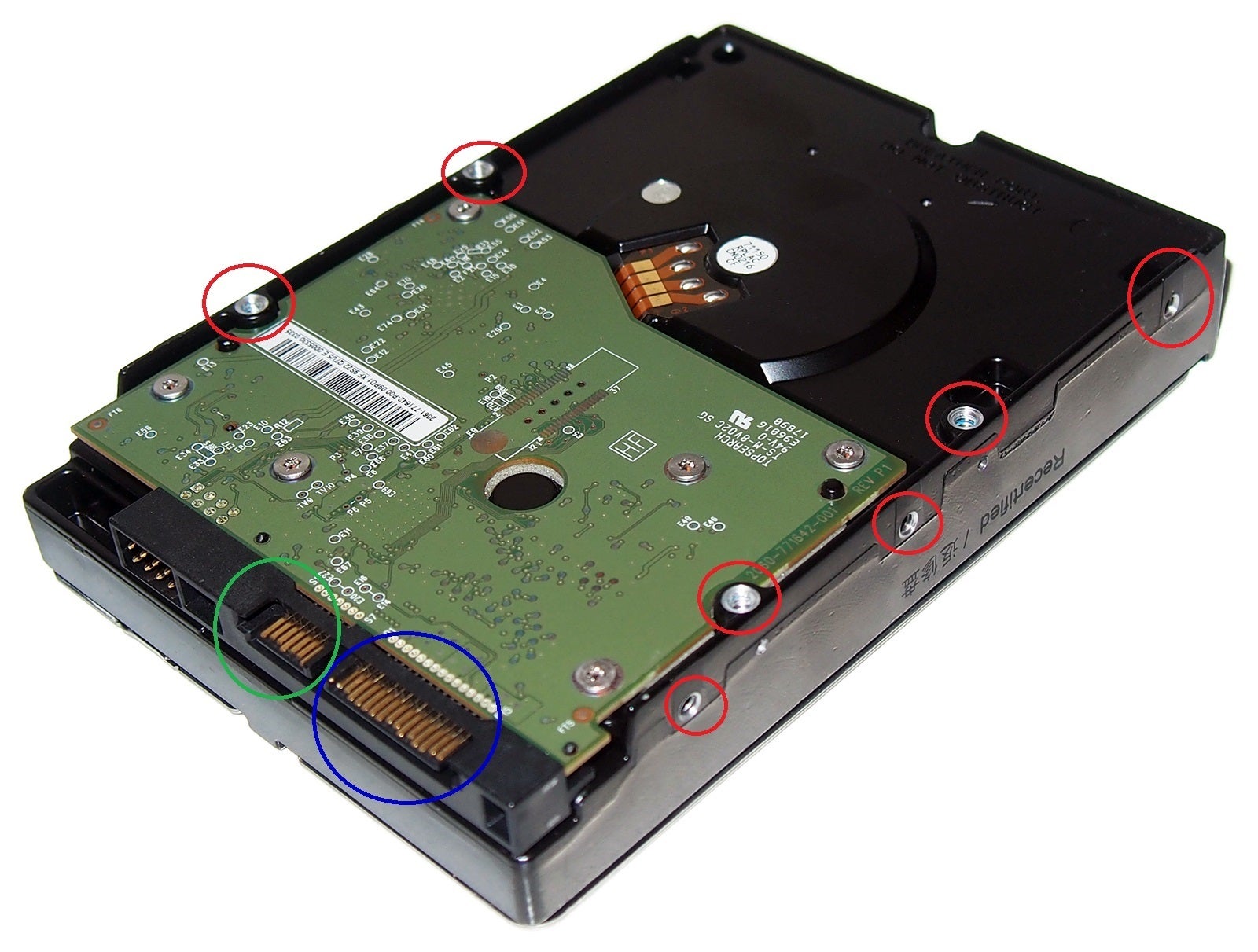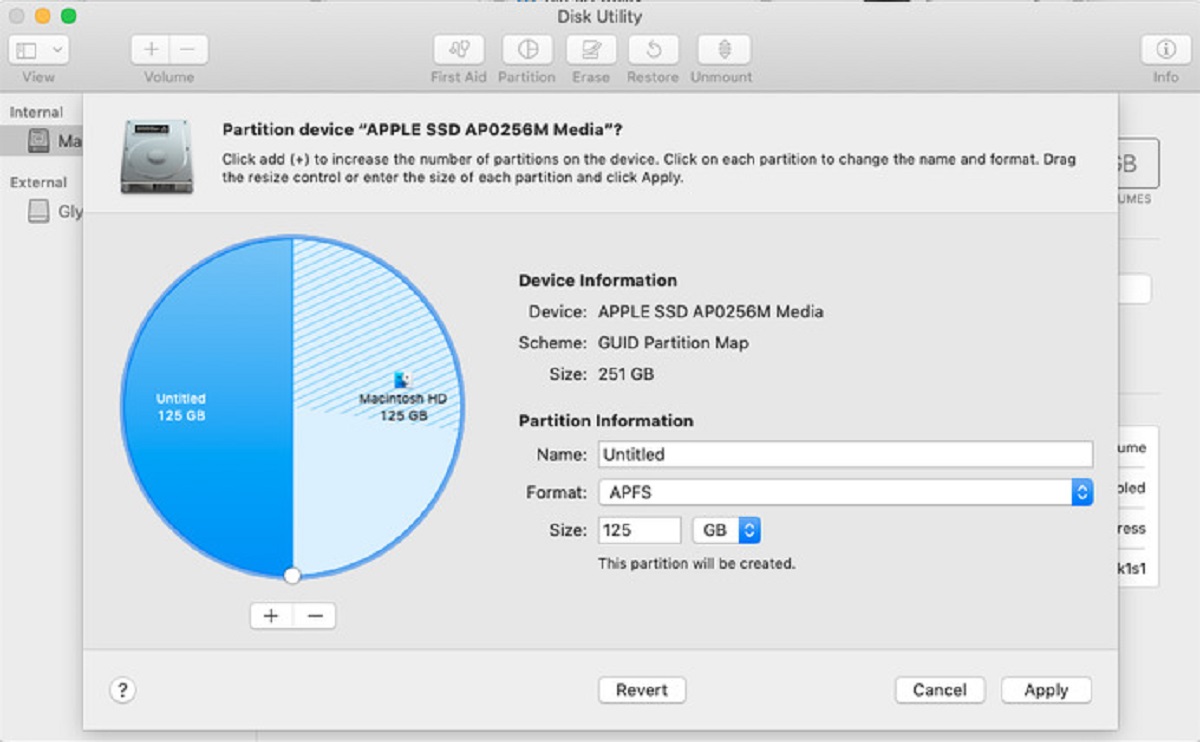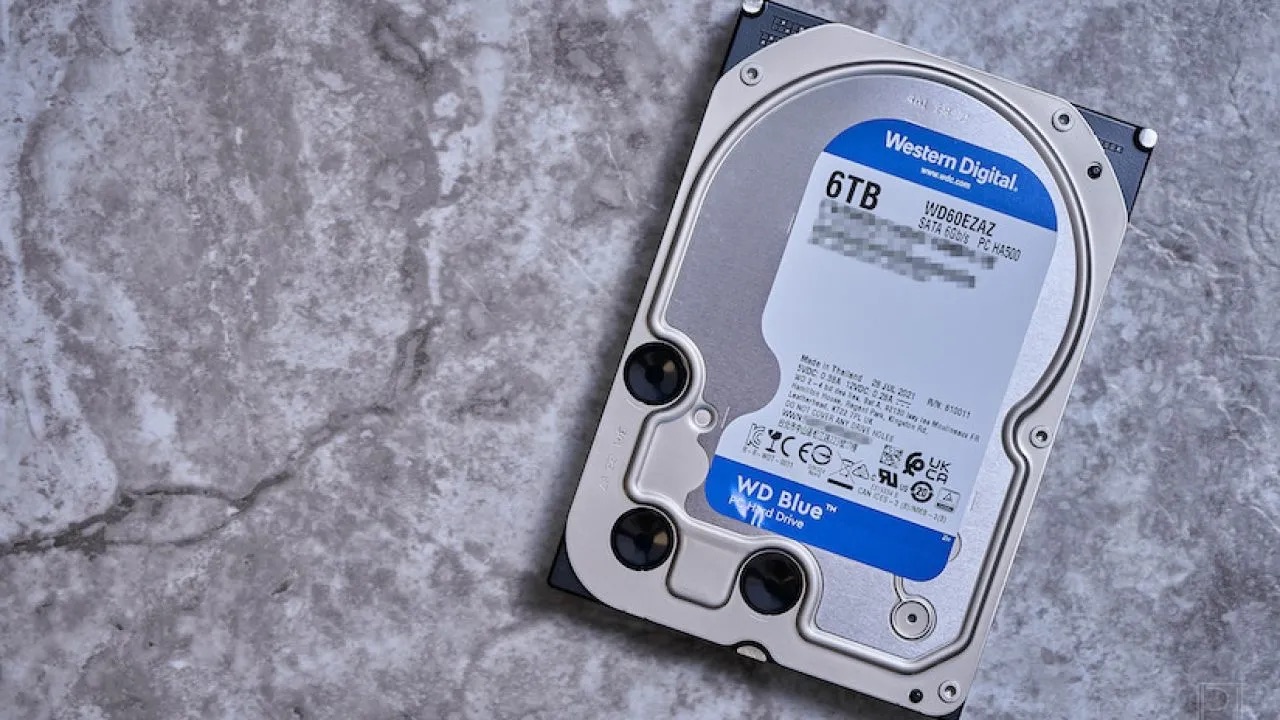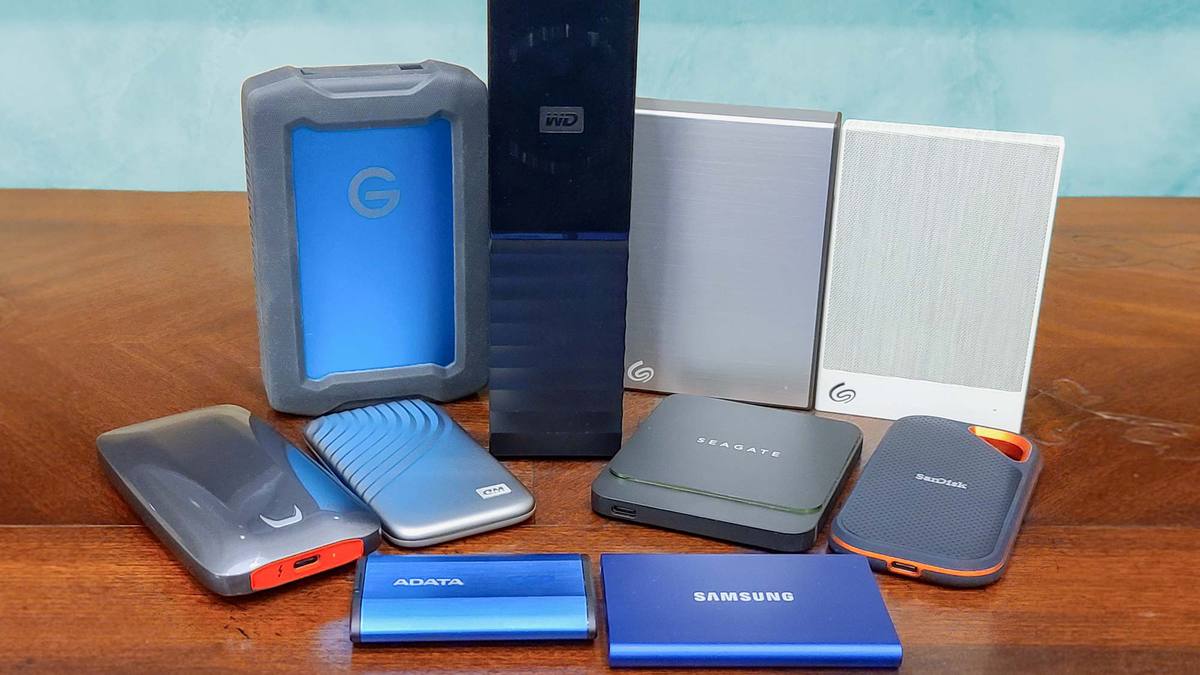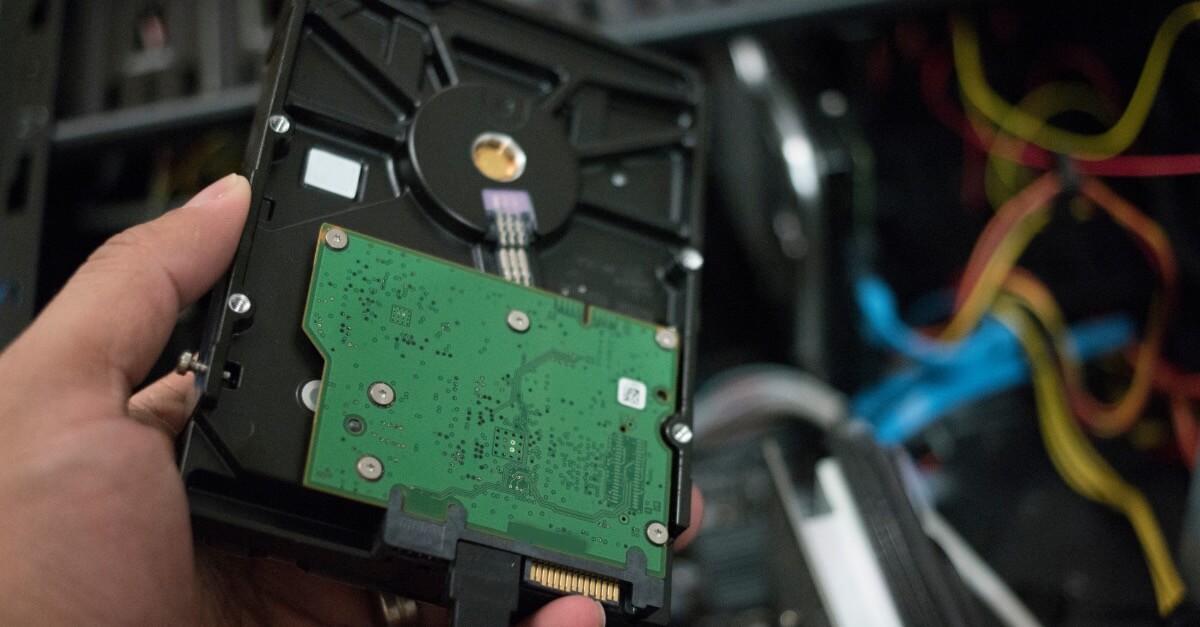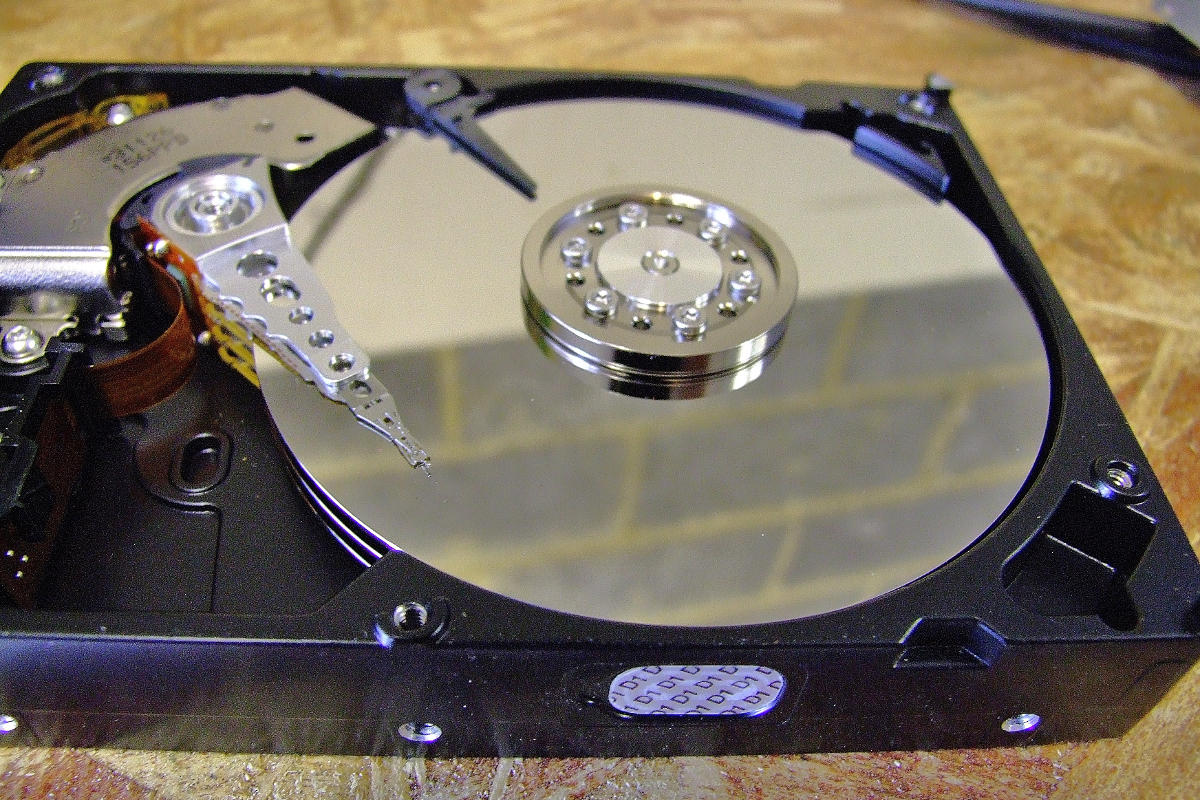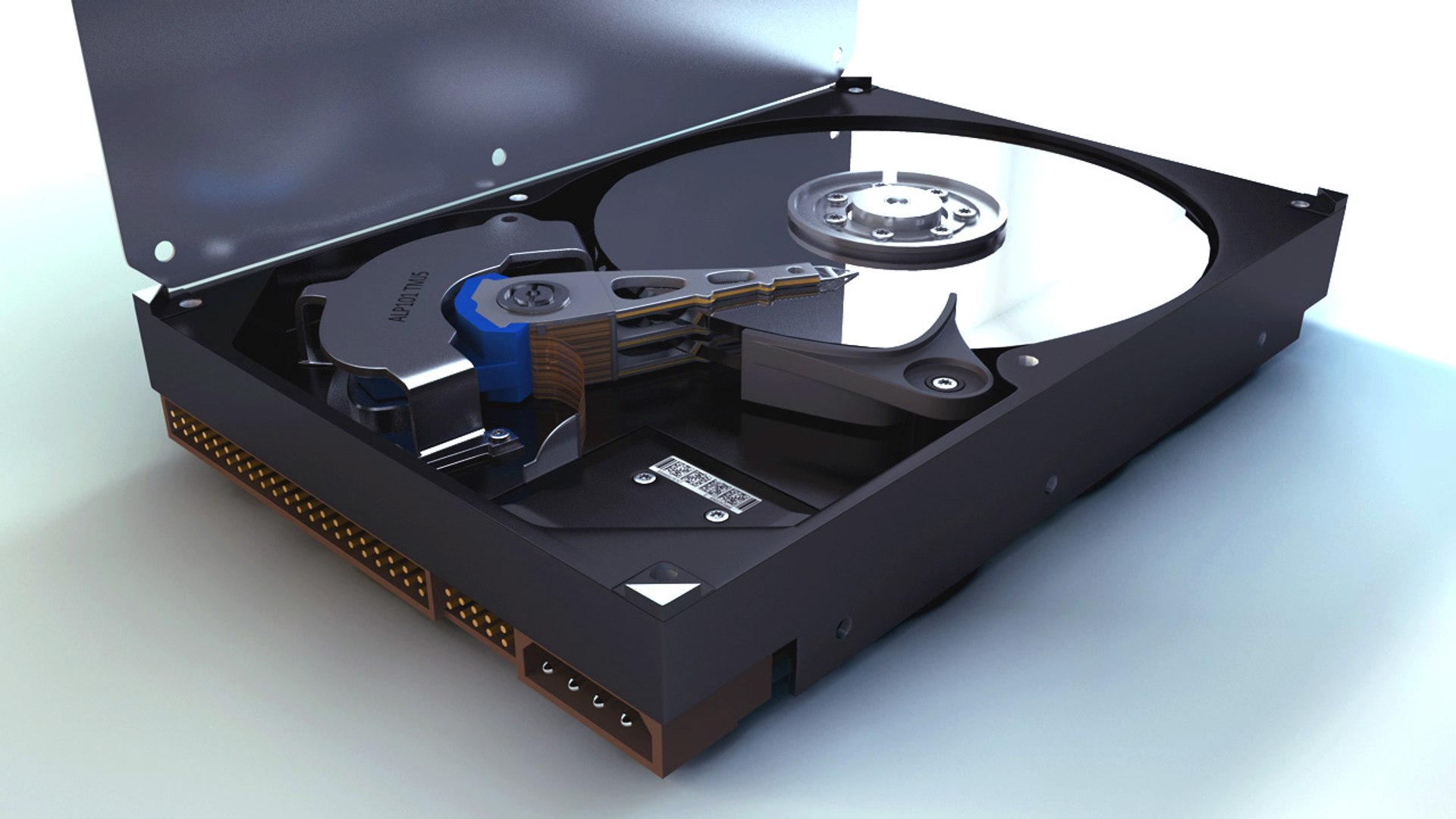Introduction
Welcome to the world of hard disk drives! As technology continues to evolve, so does our need for storage space. With the wide array of hard disk drive sizes available, it can be challenging to determine the right option for your needs. In this article, we will explore the factors that determine hard disk drive size and delve into the benefits and limitations of different sizes. Whether you’re a casual user or a data-hungry professional, understanding hard disk drive sizes will help you make an informed decision.
When it comes to hard disk drives, size refers to the storage capacity of the device – the amount of data it can hold. Hard disk drive sizes typically range from a few gigabytes to several terabytes. The size you choose will directly impact the number of files, documents, photos, and videos you can store on your computer or external device.
It’s important to note that the size of a hard disk drive is not the only factor to consider when determining how much data it can hold. The drive’s physical size, speed, and other technical specifications also play a role. However, for the purposes of this article, we will focus specifically on the storage capacity of different hard disk drive sizes.
So, whether you’re looking to upgrade your computer’s internal drive or shopping for an external storage solution, read on to discover the various factors that determine hard disk drive size. By the end of this article, you’ll have a better understanding of which hard disk drive size is best suited for your specific needs.
Factors that Determine Hard Disk Drive Size
The storage capacity of a hard disk drive is influenced by several key factors. Understanding these factors will help you choose the right size for your needs:
- Technological Advancements: One of the main factors affecting hard disk drive size is the continuous advancement in technology. As technology improves, manufacturers are able to fit more storage space into smaller physical units. This allows for higher-capacity drives to be available in smaller form factors, such as 2.5-inch or M.2 drives.
- Data Storage Requirements: The amount of data you intend to store is a crucial factor in determining the size of your hard disk drive. If you mainly work with basic documents and web browsing, a smaller-capacity drive, such as 250GB or 500GB, may be sufficient. However, if you deal with large multimedia files or have a need for extensive data storage, a larger-capacity drive, such as 2TB or more, would be more suitable.
- Usage Type: Different usage types require different levels of storage capacity. For example, if you’re a professional photographer or videographer, you’ll likely need a larger-capacity drive to accommodate high-resolution photos and videos. On the other hand, if you’re a casual user who primarily uses their computer for web browsing and basic tasks, a smaller-capacity drive should suffice.
- Future Scalability: It’s important to consider future storage needs when selecting a hard disk drive size. If you anticipate your data storage requirements to grow over time, it may be wise to invest in a larger-capacity drive from the start. This will save you the hassle of upgrading or adding additional drives in the future.
- Budget: Cost is often a determining factor when selecting a hard disk drive size. Generally, larger-capacity drives are more expensive than smaller-capacity options. It’s essential to find a balance between your storage needs and your budget to ensure you’re getting the best value for your money.
While these factors have a significant influence on the size of a hard disk drive, it’s important to remember that no single factor should be considered in isolation. It’s a combination of these factors that will help determine the most suitable hard disk drive size for your specific needs.
Common Hard Disk Drive Sizes
When it comes to selecting a hard disk drive, there are several common sizes available. These sizes are often referred to in terms of storage capacity and have become standard options in the market. Let’s take a look at some of the common hard disk drive sizes:
- 250GB to 500GB: These sizes are considered small by today’s standards but are still suitable for basic storage needs. They are ideal for users who primarily work with documents, browse the web, and use basic applications.
- 1TB to 2TB: These sizes offer a good balance between storage capacity and affordability. They are suitable for most users, including those who work with multimedia files, store large software applications, or have a moderate amount of data to store.
- 4TB to 8TB: These sizes are considered large-capacity drives and are typically preferred by professionals or users with extensive storage requirements. They are ideal for creative professionals, gamers, or anyone who deals with large files on a regular basis.
- More than 8TB: For users with exceptionally high storage needs, there are hard disk drives available with capacities exceeding 8TB. These drives are often used in enterprise environments or by users who require extensive data storage for specialized applications.
It’s important to note that these sizes are approximate and can vary depending on the manufacturer and the specific model of the hard disk drive. Additionally, advancements in technology continue to push the boundaries of storage capacity, so larger sizes may become more common and accessible in the future.
When choosing a hard disk drive size, it’s recommended to evaluate your specific storage requirements, taking into account factors such as the type of data you will be storing, future scalability needs, and your budget. This will ensure that you select a size that provides sufficient storage capacity while optimizing value for your needs.
Small-sized Hard Disk Drives
Small-sized hard disk drives refer to those with lower storage capacities, typically ranging from 250GB to 500GB. While these sizes may be considered small by today’s standards, they still serve an important purpose and are suitable for certain use cases. Let’s explore the benefits and limitations of small-sized hard disk drives:
Benefits of Small-sized Hard Disk Drives:
- Cost-effective: Small-sized hard disk drives are generally more affordable compared to their larger counterparts. This makes them an attractive option for budget-conscious users or those who only require basic storage capabilities.
- Compact and portable: Due to their smaller size, these drives are often more lightweight and portable. They are ideal for users who frequently travel or need to transfer files between different devices.
- Efficient for basic tasks: Small-sized hard disk drives are more than sufficient for everyday tasks such as web browsing, document editing, and light media consumption. They can handle these tasks with ease, offering a cost-effective solution for casual users.
Limitations of Small-sized Hard Disk Drives:
- Limited storage capacity: The main limitation of small-sized hard disk drives is their limited storage capacity. They may not be suitable for users who deal with large files, multimedia content, or require extensive data storage.
- Less room for expansion: If your storage needs grow in the future, it might be challenging to accommodate additional data with a small-sized hard disk drive. You may need to consider other options, such as upgrading to a larger drive or using external storage solutions.
- Slower data transfer speeds: Small-sized drives may have slower read and write speeds compared to larger drives. This can impact the performance when transferring or accessing large files.
Overall, small-sized hard disk drives are suitable for users with basic storage requirements or those on a tight budget. They offer a cost-effective and portable solution for everyday tasks. However, if you require more storage space or anticipate your storage needs to grow in the future, it may be worth considering larger-sized hard disk drives.
Medium-sized Hard Disk Drives
Medium-sized hard disk drives fall within the storage capacity range of 1TB to 2TB. These drives strike a balance between affordability and sufficient storage space. Let’s explore the benefits and considerations of opting for a medium-sized hard disk drive:
Benefits of Medium-sized Hard Disk Drives:
- Ideal for most users: Medium-sized hard disk drives offer a storage capacity that is suitable for the majority of users. They can comfortably accommodate a wide range of files, including documents, photos, videos, and software applications.
- Reasonably priced: Compared to larger-capacity drives, medium-sized hard disk drives are generally more affordable. This makes them an attractive option for individuals and businesses with moderate storage needs.
- Decent performance: Medium-sized drives typically provide good read and write speeds, ensuring smooth data transfer and access. While they may not match the performance of solid-state drives (SSDs), they still offer satisfactory performance for most day-to-day tasks.
Considerations of Medium-sized Hard Disk Drives:
- Limited scalability: While medium-sized hard disk drives provide ample storage for many users, they may have limitations when it comes to scalability. If you anticipate your storage needs to increase significantly in the future, you may need to consider larger-capacity drives or explore alternative storage solutions.
- Less suitable for data-heavy professionals: If you work with large multimedia files, engage in video editing, or require extensive data storage for professional purposes, a medium-sized drive may not offer enough capacity. In such cases, opting for larger-capacity drives or combining multiple drives might be more suitable.
- Power usage and noise: Medium-sized hard disk drives tend to consume more power and generate more noise compared to smaller-sized drives or SSDs. This may be a consideration if you prioritize energy efficiency or require a quieter computing environment.
Overall, medium-sized hard disk drives are a practical choice for individuals and businesses that need a significant amount of storage space without breaking the bank. They strike a balance between affordability, performance, and storage capacity. However, it’s essential to evaluate your specific storage requirements and consider future scalability needs before making a final decision.
Large-sized Hard Disk Drives
Large-sized hard disk drives offer extensive storage capacity, typically ranging from 4TB to 8TB or even higher. These drives are designed for users with high storage demands, such as multimedia professionals, gamers, or individuals with extensive data storage needs. Let’s explore the benefits and considerations of opting for a large-sized hard disk drive:
Benefits of Large-sized Hard Disk Drives:
- Ample storage space: Large-sized hard disk drives provide a vast amount of storage capacity, making them suitable for users who work with large multimedia files, have extensive gaming libraries, or require significant data storage for professional purposes.
- Scalability: With a large-sized hard disk drive, you have plenty of room to expand your storage in the future. This offers flexibility for users who anticipate their storage needs to grow over time.
- Cost-effective for high-capacity storage: Large-sized hard disk drives often provide a cost-effective solution for high-capacity storage compared to other alternatives like solid-state drives (SSDs). This makes them appealing for users who require large amounts of storage space without exceeding their budget.
- Decent read and write speeds: While they may not match the performance of SSDs, large-sized hard disk drives still offer decent read and write speeds, ensuring quick data transfer and access for most applications.
Considerations of Large-sized Hard Disk Drives:
- Power consumption and heat output: Large-sized hard disk drives tend to consume more power and generate more heat compared to smaller-sized drives or SSDs. It’s important to consider the impact this may have on your energy usage and the cooling requirements of your system.
- Physical space requirements: Due to their larger physical size, large-sized hard disk drives may require more space in your computer or external storage enclosure. Make sure you have sufficient physical space to accommodate these drives before making a purchase.
- Potential for data loss: While hard disk drives are generally reliable, the larger the drive, the greater the risk of data loss in the event of drive failure. It’s essential to have proper backup solutions in place to protect your valuable data.
In summary, large-sized hard disk drives are an excellent choice for users who require extensive storage capacity. They provide ample space for multimedia professionals, gamers, and anyone with high storage demands. However, it’s important to consider the power consumption, physical space requirements, and data loss risks associated with larger-sized drives before making a final decision.
Benefits and Limitations of Different Hard Disk Drive Sizes
Hard disk drives come in various sizes, each with its own set of benefits and limitations. Understanding these can help you determine the most suitable option for your specific needs. Let’s explore the advantages and considerations of different hard disk drive sizes:
Benefits of Different Hard Disk Drive Sizes:
- Small-sized Drives: Small-sized hard disk drives are cost-effective, compact, and ideal for basic tasks. They are suitable for users with limited storage needs, such as casual users or those who primarily work with documents and basic applications.
- Medium-sized Drives: Medium-sized hard disk drives offer a balance between affordability and storage capacity. They are suitable for most users, providing sufficient space for documents, multimedia files, and moderate amounts of data.
- Large-sized Drives: Large-sized hard disk drives provide extensive storage space, making them ideal for professionals, gamers, and users with high storage demands. They offer ample room for large multimedia files, gaming libraries, and extensive data storage.
Limitations of Different Hard Disk Drive Sizes:
- Small-sized Drives: Smaller drives have limited storage capacity, which may not be sufficient for users who deal with large files or have extensive storage needs. Additionally, they may have slower data transfer speeds compared to larger drives.
- Medium-sized Drives: While medium-sized drives are suitable for most users, they may have limitations when it comes to scalability. If your storage needs grow significantly in the future, you may need to consider larger-capacity drives or alternative storage solutions.
- Large-sized Drives: Large-sized drives consume more power, generate more heat, and have a higher risk of data loss in case of drive failure. Additionally, they require more physical space in your computer or external enclosure.
While hard disk drive sizes offer different benefits and limitations, it’s important to consider other factors as well, such as the specific use case, budget, and future scalability needs. Additionally, technology continues to evolve, and storage capacities are continually increasing. It’s important to stay updated with the latest options available in the market to make an informed decision.
By carefully evaluating the benefits and limitations of different hard disk drive sizes, you can select the size that best suits your storage requirements, performance needs, and budget constraints.
Choosing the Right Hard Disk Drive Size for Your Needs
Choosing the right hard disk drive size is essential to ensure that you have sufficient storage capacity for your needs. Consider the following factors when determining the ideal size:
1. Identify Your Storage Requirements: Assess your data storage needs by considering the types of files you work with and the amount of data you typically handle. Determine whether you primarily deal with basic documents, multimedia files, or large software applications.
2. Evaluate Future Scalability: Consider your future storage needs. If you anticipate your data storage requirements to grow significantly in the coming years, it might be wise to invest in a larger-capacity drive from the start to avoid the hassle of frequent upgrades or the need for additional drives.
3. Determine Your Budget: Set a budget for your hard disk drive purchase. Remember that larger-capacity drives tend to be more expensive than smaller ones. Find a balance between storage capacity and cost-effectiveness to get the best value for your investment.
4. Consider Performance Needs: Evaluate the performance requirements for your specific tasks. If you work with large multimedia files or require quick access to data, opting for a larger-sized drive with faster read and write speeds, or even considering solid-state drives (SSDs), may be beneficial.
5. Assess Physical Space: Ensure that you have enough physical space in your computer or external device to accommodate the chosen hard disk drive size. Larger-sized drives may require more physical space, so it’s important to verify compatibility before making a purchase.
6. Balance Power Usage and Noise: Keep in mind that larger-sized hard disk drives tend to consume more power and generate more noise. If energy efficiency or a quieter computing environment is a priority, consider the power consumption and noise levels of the chosen drive size.
By carefully evaluating these factors, you can make an informed decision and choose the right hard disk drive size that meets your specific needs. It’s important to remember that no single factor should be considered in isolation, and striking a balance between storage capacity, performance, budget, and future scalability is key.
Conclusion
When it comes to selecting the right hard disk drive size, it’s crucial to consider your specific storage requirements, future scalability needs, budget constraints, and performance expectations. By understanding the benefits and limitations of different sizes, you can make an informed decision that aligns with your needs.
Small-sized hard disk drives offer a cost-effective and portable storage solution for basic tasks, while medium-sized drives strike a balance between affordability and storage capacity for most users. On the other hand, large-sized drives provide extensive room for high-demand storage needs, but come with considerations such as power usage and physical space requirements.
No matter the size you choose, it’s important to assess your specific needs and prioritize factors such as data storage requirements, future scalability, budget, and performance expectations. Additionally, staying informed about the latest advancements in storage technology can help you make a more informed decision.
Remember that hard disk drive size is just one aspect to consider. Other factors like data backup solutions, drive reliability, and compatibility with your system should also be taken into account. Regularly backing up your data ensures its safety and minimizes the risk of loss in the event of drive failure.
Whether you opt for a small-sized drive for basic storage needs, a medium-sized drive for a balance of affordability and capacity, or a large-sized drive for extensive storage demands, selecting the right hard disk drive size will help ensure that you have enough space to store your valuable files and data.
Ultimately, the right hard disk drive size is a personal choice that depends on your specific needs and preferences. By considering all the factors mentioned in this article, you can confidently choose the hard disk drive size that best suits your requirements, providing you with ample storage capacity and meeting your performance needs.









